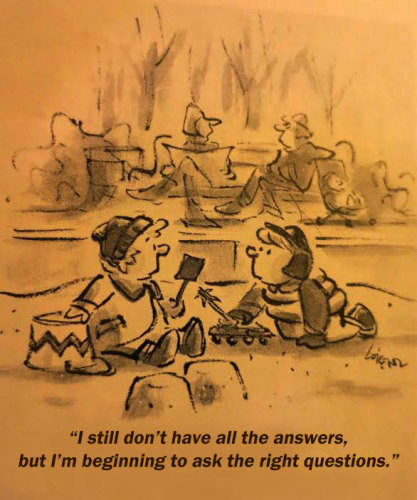Part 2/3
In part one, Will, Emotion and the Force of Idealism, we considered the benefits and limitations of the concept of will. We brought together influential ideas that influence both Western (will) and Eastern (acceptance) ways of thinking and functioning. We also began to look at how these ideas can complement one another toward the betterment of the individual and the society and identified that that there is a truth beyond that which we can see, beyond that which we can control, which is relevant to the choices we make. Here in part two, we look at how emotions can influence our perspective, even distorting our view on ourselves and the world around us. It is by being aware of our emotions that we gain a balanced outlook and respond to the challenges of life, rather than reacting from some internal distortion or impulsivity….Part 2: Healthy Mindedness and Emotions
As a psychotherapist I experience how it is that people are dealing with the way emotions impact their lives. People seem to be either effected by emotions that have been buried (detached, unfelt or unexpressed) resulting from past events, or as a learned response to emotional situations and which create a subconscious undercurrent, one of which they are often unaware, or…from intensely felt emotions that over-ride the psychological system and fuel thoughts and behaviors that are often incongruent with the one’s desired behavior. These emotions can lead to regrets, guilt and negative beliefs about oneself (i.e. I am not good enough).
The first form represents an overly-controlled, denied or repressed emotion…and which creates its own consequence. The second example is of emotions that feel out-of-control…rage, paranoia, compulsivity, jealousy, etc., and which also have internal and external consequences.
William James points to the importance of balance when it comes to emotions. It is his contention that a balance between detachment and the expression of feelings serves the organism best. Let’s explore the idea of a balance by looking at each of these ideas in their extremes.
To Feel or Not to Feel
To be too detached from our emotions is not to know the influence they have as fuel for our thoughts or the lens of our perspective. We all know people, even cultural groups, who have learned or chosen not to feel, not to experience the emotions that come from living life.
Their emotions are relegated to a subconscious part of themselves, buried. They exist and sometimes show up in outbursts or in unhealthy behaviors or in depression. A person may lack  awareness of the feelings they have. These emotions become invisible ingredients that influence their moods, their outlook and their behavior. They create insecurity, low self-esteem, fear, mistrust as well as bullying behavior. Much could be said about how this is learned at a young age and is under the influence of our family or culture.
awareness of the feelings they have. These emotions become invisible ingredients that influence their moods, their outlook and their behavior. They create insecurity, low self-esteem, fear, mistrust as well as bullying behavior. Much could be said about how this is learned at a young age and is under the influence of our family or culture.
The extreme version of emotional expression is allowing the intensity of an emotion to dominate the rest of one’s psychological makeup…one’s thinking, what one comes to believe.
We have all seen or experienced temper tantrums, emotional meltdowns, and the influence of paranoia or high anxiety. Where too much detachment negates emotions and relegates it to the influence of the unconscious, emotions which reach an intense level tend to dominate and distort our perspective.
Extreme fear can influence us to believe that conditions are worse than they are. Extreme guilt can influence us to hold negative beliefs about the kind of person we are. Extreme anger can create the impulse to act violently. Experiencing extreme emotions tends to distort the perspective we have on a situation.
Know Thyself
The balanced approach to experiencing emotions is to gain awareness of what we are feeling, such that it can be integrated into a larger sense of who we are.
We can learn to avoid…either stuffing it away or expressing it without an appropriate detachment. It might be understood best by discerning the difference between a reaction to an event and a response.
A reaction is emotionally fueled and impulsive, meaning that there is no time or awareness between the event and the action taken. The intensity of the emotion isn’t taken in to account, nor is the way in which it aligns with one’s value system or un-biased perspective. Often people regret impulsive reactions to events in their lives.
Responses are generally created by pausing (staying calm) long enough to understand the feelings that are generated and to integrate those feelings into a larger context…that which might include the feelings of others as well as being in alignment with one’s own values or sense of fairness.
Awareness of our emotions keeps them from being buried in our subconscious or expressed in ways that are too intense and create reactions of their own. Healthy-minded responses allow emotions to be translated into actions (expressed)…in ways that are appropriate and effective.
With an individual who is depressed or anxious we seek to bring awareness to the emotions they have, sometimes which have been buried or not clearly seen. We also look closely at the intensity of their emotions and whether they have developed belief systems that come as a result of intense guilt, anger, fear or shame.
By gaining emotional regulation…awareness of emotions as we experience them…we can let them come and go. We can choose the response that is most appropriate to the emotions we have.
Healthy-mindedness allows emotions to be understood in their context and keeps them from distracting ourselves from that which William James calls, “the active force of idealism.”
stay tuned… In part 3 we look at the importance of having and knowing one’s ideals or what it is that creates meaning in a person’s life.



